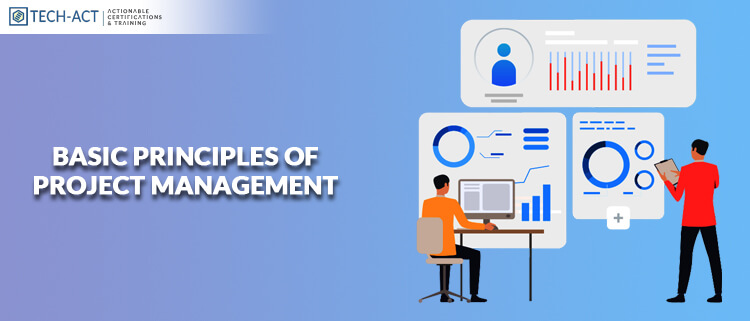
As a front-line manager, your responsibilities include handling unique situations within a store and helping to prevent problems from happening. Managers also help employees improve their skills, which is crucial in these difficult economic times. These are just some of the responsibilities that front-line managers have. These include communication skills as well as employee development and customer service.
Communication skills
All employees are under the direct supervision of front line managers. This means that front line managers need to be excellent communicators. They should be able communicate effectively with employees and deal with a variety of personalities. Communication is essential. You must be able to communicate clearly and listen well. You must also be able to communicate complex issues and translate them.
Frontline managers must communicate effectively with their employees. For business relationships to be maintained and developed, they need to be able to communicate well with people. They should also be able to demonstrate empathy and develop rapport. They must have excellent listening skills to be able gather valuable feedback and resolve issues in a timely manner.

Team building
Managers at the front line are responsible for managing day-to-day business operations. They need to have a wide range of skills in order to succeed. These skills range from strategic thinking and communication to emotional intelligence and a flair for coaching. They need to be able listen, analyze and motivate others.
Front-line managers need to be able understand and measure the company's goals. They must be able to recognize and comprehend the different stressors that affect team members. This will enable them identify the best ways to accomplish their tasks.
Managing employee behavior
A key component of successful management is managing employees' behavior. This is an essential component of employee engagement. Frontline managers must recognize and collaborate with HR to address the issues. If employees don't meet their expectations, they should also be challenged.
Frontline managers face one of their greatest challenges: changing their mindset. Many managers fear changing their mindset and see the limits of their job. Others, however, recognize the need for role reorganization but are hesitant to change their mindset. Companies must address these dangerous mindsets.

Managing customer service
For customer service to be successful, the front line manager must be a strong leader and communicate well. A front line manager should have previous experience in customer service. Eventually, a front line manager may be promoted to human resources or training coordinator, or become the head of customer service. They may eventually rise to the position of vice president or chief executive officer.
The front line manager's role is to understand customer concerns and relay that information to other managers. This helps close the gap between the company and the customer, thus improving the overall experience. Another important aspect of being a front line manager is dealing with employee issues. One example is when an employee may not be doing their job properly or may miss a shift. The front line manager should be able to deal with these situations and resolve them quickly.
FAQ
What is Six Sigma?
It is a way to improve quality that places emphasis on customer service and continuous learning. This is an approach to quality improvement that uses statistical techniques to eliminate defects.
Motorola created Six Sigma as part of their efforts to improve manufacturing processes in 1986.
The idea spread quickly in the industry. Today many organizations use six-sigma techniques to improve product design.
How do you define Six Sigma?
Six Sigma will most likely be familiar to people who have worked in statistics and operations research. Anybody involved in any aspect or business can benefit.
It is a commitment-intensive task that requires strong leadership skills.
Why is project management important for companies?
Project management techniques ensure that projects run smoothly while meeting deadlines.
This is because many businesses depend heavily upon project work to produce products and services.
These projects are essential for companies.
Companies could lose their time, reputation, and money without effective project management.
What are some common mistakes managers make when managing people?
Managers can make their jobs more difficult than necessary.
They may not delegate enough responsibilities and not provide sufficient support.
Additionally, many managers lack communication skills that are necessary to motivate and direct their teams.
Managers can set unrealistic expectations for their employees.
Managers may attempt to solve all problems themselves, rather than delegating it to others.
What are the five management steps?
Planning, execution, monitoring and review are the five stages of any business.
Planning involves setting goals for the future. This includes setting goals for the future and defining what you want.
Execution takes place when you actually implement the plans. You need to make sure they're followed by everyone involved.
Monitoring allows you to monitor your progress towards achieving your goals. Monitoring should include regular reviews of performance against goals and budgets.
Every year, there are reviews. They give you an opportunity to review the year and assess how it went. If not, then it may be possible to make adjustments in order to improve performance next time.
Evaluation takes place after the annual review. It helps you identify the successes and failures. It also provides feedback on how well people performed.
What is Kaizen?
Kaizen is a Japanese term which means "continuous improvement." This philosophy encourages employees to continually look for ways to improve the work environment.
Kaizen is founded on the belief of everyone being able to do their job well.
How can a manager enhance his/her leadership skills?
Good management skills are essential for success.
Managers should monitor the performance and progress of their subordinates.
You must act quickly if you notice that your subordinate isn’t performing to their standards.
You should be able to identify what needs improvement and how to improve things.
Statistics
- As of 2020, personal bankers or tellers make an average of $32,620 per year, according to the BLS. (wgu.edu)
- 100% of the courses are offered online, and no campus visits are required — a big time-saver for you. (online.uc.edu)
- Our program is 100% engineered for your success. (online.uc.edu)
- Your choice in Step 5 may very likely be the same or similar to the alternative you placed at the top of your list at the end of Step 4. (umassd.edu)
- UpCounsel accepts only the top 5 percent of lawyers on its site. (upcounsel.com)
External Links
How To
How do you implement Quality Management Plans (QMPs)?
QMP (Quality Management Plan) is a system to improve products and services by implementing continuous improvement. It emphasizes on how to continuously measure, analyze, control, and improve processes, product/service, and customer satisfaction.
QMP is a common method to ensure business performance. QMP helps improve production, service delivery and customer relationships. A QMP should include all three aspects - Processes, Products, and Services. If the QMP only covers one aspect, it's called a "Process QMP". When the QMP focuses on a Product/Service, it is known as a "Product" QMP. QMP is also used to refer to QMPs that focus on customer relations.
Scope, Strategy and the Implementation of a QMP are the two major elements. These are the following:
Scope: This determines the scope and duration of the QMP. If your organization wishes to implement a QMP lasting six months, the scope will determine the activities during the first six month.
Strategy: This describes the steps taken to achieve the goals set out in the scope.
A typical QMP includes five phases: Design, Planning, Development and Implementation. Here are the details for each phase.
Planning: In this stage the QMP's objectives and priorities are established. To get to know the expectations and requirements, all stakeholders are consulted. Next, you will need to identify the objectives and priorities. The strategy for achieving them is developed.
Design: This stage is where the design team creates the vision, mission and strategies necessary for successful implementation of QMP. These strategies are then put into practice by creating detailed plans.
Development: Here, the team develops the resources and capabilities that will support the successful implementation.
Implementation: This is the actual implementation and use of the QMP's planned strategies.
Maintenance: This is an ongoing procedure to keep the QMP in good condition over time.
Additionally, the QMP should include additional items:
Participation of Stakeholders: The QMP's success depends on the participation of stakeholders. They are required to actively participate in the planning, design and development of the QMP, as well as the implementation and maintenance phases.
Project Initiation: It is essential to have a clear understanding about the problem and the solution before you can initiate a project. The initiator must know the reason they are doing something and the expected outcome.
Time Frame: This is a critical aspect of the QMP. A simple version is fine if you only plan to use the QMP for a brief period. You may need to upgrade if you plan on implementing the QMP for a long time.
Cost Estimation - Cost estimation is an important part of the QMP. You can't plan without knowing how much money it will cost. The QMP should be cost-estimated before it can begin.
The most important thing about a QMP is that it is not just a document but also a living document. It changes with the company. It is important to review it periodically to ensure it meets all current requirements.